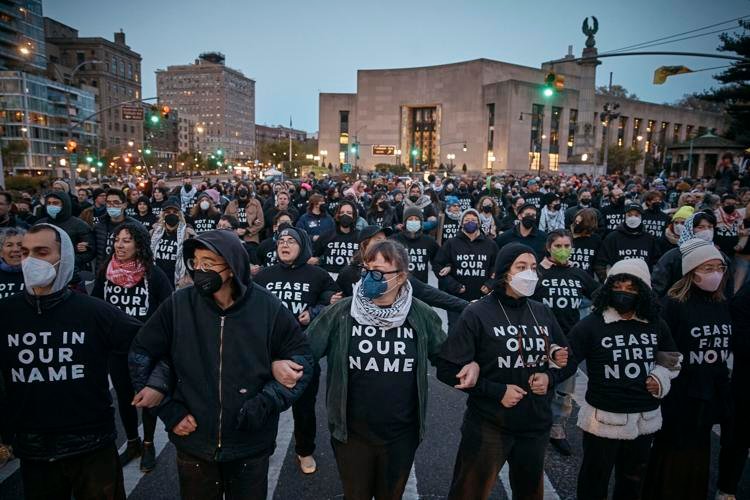A Veteran Activist Joins Columbia Protesters
In recent news, a veteran activist has joined the ranks of Columbia protesters, adding her voice to the ongoing movement. However, instead of being recognized for her commitment to social justice, the police have labeled her as a “professional agitator.” This label raises important questions about the role of activism and the perception of those who engage in it.
The Power of Activism
Activism has long been a powerful force for change in society. It allows individuals to voice their concerns, challenge the status quo, and fight for justice. From the civil rights movement to environmental advocacy, activism has played a crucial role in shaping our world.
At its core, activism is about standing up for what one believes in and working towards a more equitable and just society. It is a way for individuals to use their voices and actions to bring attention to important issues and push for meaningful change.
A Veteran Activist’s Perspective
The veteran activist who has joined the Columbia protesters brings a wealth of experience and knowledge to the movement. Having dedicated years of her life to fighting for various causes, she understands the power of collective action and the importance of raising awareness.
For her, activism is not a profession but a calling. It is a way to use her skills and expertise to make a positive impact on the world. The label of a “professional agitator” undermines the genuine intentions and dedication she brings to the cause.
The Police Perspective
The police’s characterization of the veteran activist as a “professional agitator” raises concerns about the perception of activism. While it is understandable that law enforcement may view protests as disruptive, it is essential to recognize that activism is a legitimate form of expression and a fundamental right in a democratic society.
Labeling activists as “agitators” can be seen as an attempt to delegitimize their efforts and undermine the validity of their cause. It creates a narrative that portrays activists as troublemakers rather than individuals fighting for justice and equality.
Challenging Stereotypes
It is crucial to challenge the stereotypes and misconceptions surrounding activism. Activists come from diverse backgrounds and have a wide range of motivations for their involvement. They are not simply troublemakers or professional agitators, but individuals who are deeply passionate about creating a better world.
By labeling activists in such a negative light, we risk discouraging others from participating in important movements and silencing those who are already fighting for change. It is essential to foster a society that values and respects the voices of activists, recognizing their contributions to progress.
The Importance of Dialogue
Instead of dismissing activists as “professional agitators,” it is crucial to engage in meaningful dialogue. By listening to their concerns and understanding their perspectives, we can work towards finding common ground and creating positive change.
Engaging in dialogue does not mean agreeing with every point of view, but it does mean respecting the right to express dissent and engaging in constructive conversations. Through open and respectful dialogue, we can bridge the gap between different perspectives and find solutions that benefit everyone.
Conclusion
The veteran activist who has joined the Columbia protesters brings valuable experience and dedication to the cause. The police’s characterization of her as a “professional agitator” undermines the importance of activism and perpetuates negative stereotypes.
It is essential to recognize the power of activism and engage in meaningful dialogue to address the issues at hand. By fostering a society that values and respects the voices of activists, we can work towards a more just and equitable future.




































